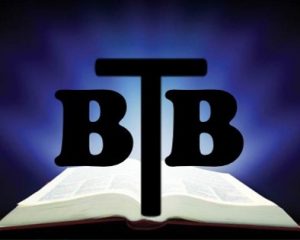This is a short summary of first and second Kings in the Bible as recorded in ‘The Bible Brief’ – A summary of the complete Bible from Genesis to Revelations.
1 Kings Summary
When it was written:
Most likely between 561 and 538 B.C.
Who wrote it:
Jewish tradition says Jeremiah, but evidence inconclusive.
People & Places:
King David; King Solomon; Bathsheba; Hiram; Queen of Sheba; Rehoboam; Jeroboam; Elijah; Jezebel; Ahab;
Jerusalem; Israel; Judah; Zarepath; Mount Carmel
Sound-Bites:
“As the Lord has been with my lord the king, so may He be with Solomon, and make his throne greater than the throne of my lord King David!” (Ch.1:37)
Now Solomon ruled over all the kingdoms from the River to the land of the Philistines and to the border of Egypt; they brought tribute and served Solomon all the days of his life. (Ch.4:21)
So King Solomon became greater than all the kings of the earth in riches and in wisdom.
24. All the earth was seeking the presence of Solomon, to hear his wisdom which God had put in his heart. (Ch.10:23, 24)
Ahab the son of Omri did evil in the sight of the Lord more than all who were before him. (Ch.16:30)
The Messianic Link:
Jesus is typified in the life of Solomon. The name Solomon means peace. Isaiah 9:6 describes the Messiah as the ‘Prince of Peace.’
1 Kings in Brief:
The book of Kings is a narrative history of the Kings of Israel and Judah. The first 2 chapters concentrate on events leading up to, and including, the death of King David in old age. He is succeeded by his son, Solomon, who builds a reputation as a righteous judge and powerful monarch. The Lord himself—through Nathan the Prophet—gives him the name ‘Jedediah’ meaning beloved of the Lord. (2 Sam.12:25).
Upon King Solomon’s death, however, the kingdom is split and divided between his son Rehoboam, who leads the southern kingdom of Judah, and his deposed commander Jeroboam, who leads the northern kingdom of Israel, and encourages them to worship gods other than Yahweh.
There follows a succession of Kings both good and bad, the worst being Ahab, described as the most evil king Israel ever had. (Ch. 16:30)
Notes & Quotes:
Most noteable In my mind is the way this book emphasises just how important it is for a country or nation to have good leadership as well as how easy it is for even very ‘Godly’ people to get involved in very ‘ungodly’ things. King Solomon seemingly had everything, including a deep and personal relationship with The Lord, and yet in his later days he backslid with the best of them and reduced his own people to slavery—hence the revolt and split when he died.
The story of the most evil King Ahab, who repented in his old age and was accepted by God, is a tremendous example of The Lord’s capacity to forgive no matter how bad the crime. (Ch.21:27-29)
2 Kings Summary:
When it was written:
Most likely between 561 and 538 B.C.
Who wrote it:
Jewish tradition says Jeremiah, but evidence inconclusive.
People & Places:
Elijah; Elisha; Isaiah; Hezekiah; Josiah; Nebuchadnezzar; Pharaoh Neco
Judah; Israel; Samaria; Moab; Aram; Babylon
Sound-Bites:
When they had crossed over, Elijah said to Elisha, “Ask what I shall do for you before I am taken from you.” And Elisha said, “Please, let a double portion of your spirit be upon me.” (Ch.2:9)
So they poured it out for the men to eat. And as they were eating of the stew, they cried out and said, “O man of God, there is death in the pot.” And they were unable to eat. (Ch.4:40)
So Hezekiah answered, “It is easy for the shadow to decline ten steps; no, but let the shadow turn backward ten steps.” Isaiah the prophet cried to the Lord, and He brought the shadow on the stairway back ten steps by which it had gone down on the stairway of Ahaz. (Ch.20:10-11)
Messianic Link:
The Messiah is typified in the life and miracles of the Prophet Elisha.
2 Kings in Brief:
2 Kings begins with the end ministry of the Prophet Elijah and his replacement with his student Elisha. Thereafter there is a running commentary of the Kings of Israel, who were mostly bad, and the Kings of Judah who were mostly good but still bad at one time or another!
The prophets Elijah, Elisha and Isaiah are a guiding light for the Kings, but even they cannot stop the decline into idolatry by both kingdoms.
It all leads to the capture of Samaria in the northern kingdom of Israel by the Assyrians (Ch.17) and the siege and capture of the southern kingdom & Jerusalem by Nebuchadnezzar in chapter 25.
Notes & Quotes:
The history of Israel and Judah—the divided kingdom of David—shows that God is a God of many chances, but he is also a God of the last chance! There comes a point where He will exact justice or retribution for sins committed, especially where there is no repentance offered.
The Kings and Peoples of both kingdoms repeatedly resorted to idolatry, and abandoned their God, Yahweh. This led ultimately to the loss of Israel in its entirety and the deportation of Judah into Babylon.
“You shall have no other gods before Me.” (Ex.20:3)


